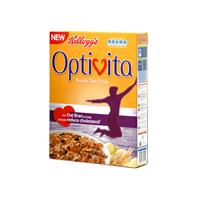London: New research1 to coincide with World Heart Day 2006 finds men in midlife still taking HEALTH risks: 45% of men would wait until they were ill before taking action and changing their lifestyle and behaviour; Wives and partners could be the key to better health and longer life for men.
The inequality in life expectancy between men and women is growing wider
and men are falling behind at a faster pace than ever. In 1940 women outlived men by 4.4 years today the average is nearly seven.2
The biggest cause of premature death in men is heart disease, despite being one of the most easily treated and, therefore, preventable causes of death. New research1 from healthcare company McNeil Ltd. highlights mens risk taking attitudes as they enter mid-life.
Particularly relevant for World Heart Day 2006 (24th September) is the important role men identify for wives and partners in helping them change engrained and often life threatening behaviour.
Mens behaviours and attitudes are threatening their health and happiness? Midlife does not seem to have affected mens ambition with 60% of men over 45 feeling they still had much to achieve, while nearly a third clearly stated feeling excited about entering a new stage of their lives.
Life is still good with 43% of the men surveyed claiming they had had sex in the last seven days! Men considered the biggest priority for their health over the next 20 years was keeping mentally capable, staying out of hospital and being
there for their kids. 45% of men would only be prompted into improving their health and changing unhealthy behaviour by becoming ill first – the idea of preventing potential problems through diet and behaviour is an anathema.
One third of men over 45 never exercise and 13% are perfectly happy
with the fact they are unfit and overweight – and as a consequence at
increased risk of heart attack. A quarter of men over 45 drink more than the weekly allowance of 21 units and over half were on some sort of medication, indicating a clear need for men to re-evaluate their health and lifestyle choices.
The biggest killer of men is heart disease and too many men are dying from
this condition by failing to tackle their risks, said Dr. Mike Ingram, GP and mens health specialist.
The risk of heart disease increases with age- while men might covet a sports car or motorbike during their menoporsche, if they want to enjoy a long and active life they need to focus more on reducing their risk factors for heart disease such as smoking, blood pressure and cholesterol.
Regardless of where you start, reduction of cholesterol through diet and the proven effectiveness of statins will reduce risk. Key to a healthy heart is wives and partners The research highlighted how wives and partners were regarded by men as key to becoming more proactive with their health. Men ranked their wives and partners as equal to GPs in prompting changes towards healthier behaviour.
Considering men spend more time with their wives and partners than their local GP, there is clearly a role and responsibility for them to motivate the men in their lives to look after their health, said Dr Mike Ingram.
If men are going to enjoy the increasing trend of a healthy old age then changing risky behaviour as they reach their male menopause is the key. Time after time I see men at my surgery whose attendance has been due to their wives concerns. I know that their motivation and support will help change their behaviour and even avoid an untimely and premature death.
McNeil Ltd., manufacturers of Zocor Heart Pro®, the over-the-counter pill that effectively reduces cholesterol, recommends the following 10 simple ways that wives and partners could actually help to save their husbands
life.
Ten Ways to Save Your Husbands Life:
1. Know the warning signs : Changes in bowel or bladder habits; Recurrent chest pain; Unexplained weight loss or gain; Extreme fatigue; Ensure that he makes a GP appointment if he has any of these symptoms
2. Does he know his blood pressure? High blood pressure damages the blood vessels, heart and kidneys
3. Encourage him to check himself out with routine testicular checks.
4. Promote a healthy diet – encourage him to eat a healthy, low fat diet with at least five portions of fruit and vegetables a day
5. Stop smoking – Create a new routine and rewards for milestones. NHS Quitline
recommends using nicotine replacement therapy at the same time as cutting
down on cigarettes, as it improves success.
6. Exercise regularly – give him encouragement, time and space to take exercise, or make it part of the family regime – little and often to start with
7. Reduce alcohol intake – do you know how much he drinks at home in the week probably you wont show him the cans and bottles from a single weeks recycling if he is getting through more than 10 pints a week.
8. Be realistic about weight: be honest with your husband or partner
about whether he needs to lose weight and how much he needs to lose. The best way to do this is to follow a healthy low fat diet and regular gentle
exercise.
9. Reduce his cholesterol – get him to have his cholesterol levels checked and take appropriate steps to reduce it. If he is over 45 ask your pharmacist if he should take an OTC statin.
Be Patient – the goal of taking a more active role in mens health care is to
get your husband to take better care of himself, and to get the next generation of men to start building good habits. A small change can make
a big difference.
Heart attack is the single biggest cause of premature death in the UK and will account for 1 in 4 male deaths each year4. Raised cholesterol is a key risk factor for heart attack in men over 45. There is an estimated 8.8 million of people who are considered at moderate risk of a heart attack (10-15% chance) in the next 10 years3. While many in this group will be below the threshold that would make them eligible for prescription statins, the single most effective product that you can buy to reduce cholesterol before it becomes a problem is an over the counter statin from the pharmacist.
Zocor Heart-Pro® contains simvastatin, always read the leaflet. Consult
your pharmacist for advice. Zocor Heart-Pro® is suitable for men aged 55 or over. In addition it is suitable for men aged between 45 and 54, or women aged 55 or over if they have a one or more of the following risk factors: a family history of heart disease, smoke (current or within last 5 years), are overweight, or
have a family origin from South Asia. References: 1. TNS Onlinebus conducted 183 interviews with men aged 45-64 on 24th-27th August 2006 2. 19 Ways the Save Your Husbands Life By Armin Brott 3. Ipsos RSL Consumer Survey amongst 612 UK adults. July 2004. 4. British Heart Foundations Statistical Database. 2003.








